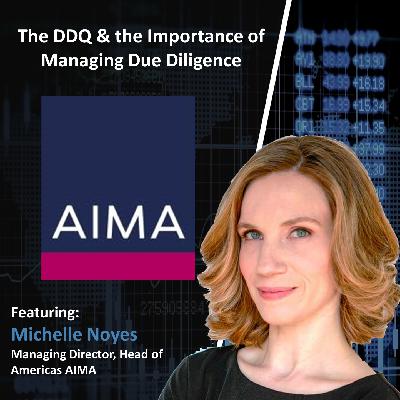Inflation's Impact on Commodity Trading Advisors (CTAs) With Charlie McGarraugh of Altis Partners & Blockchain.com
Description
In this episode, Charlie McGarraugh and Geoff Marcus discuss inlation's impact on Commodity Trading Advisors (CTAs) and the managed futures sector in general.
View more on alpha-maven.com
Excerpt:
GEOFF MARCUS: Hi, I'm Geoff Marcus with Alpha Maven. Today, we're going to be continuing our discussion with Charlie McGarraugh. Charlie is the chief investment officer at Altis Partners and also the chief strategy officer of Blockchain.com. Charlie, do you expect that we'll see a revenge of the old economy moving forward?
CHARLIE McGARRAUGH: Yes. Okay. So I do agree that we will see a revenge of the old economy. And by that, I think but my former colleague, Mr. Jeff Currie, means by that phrase, it's this idea of a refocus on capital intensive businesses or direction of capital into bricks and mortar and commodity capacity. Right. And I strongly think that that is the pathway forward.
Markets for a long time have been focused on materialization virtualization software. You know, broadly speaking, electrons, not molecules. And and with the increase in geopolitical uncertainty, reshoring of supply chains and and supply side constraints are all in some ways related to under-investment in commodity CapEx. It is likely that markets will be much more focused on molecules and movements of molecules and the costs associated with that, storing them, providing liquidity to them.
And then in recent years.
GEOFF MARCUS: Thanks, Charlie. How big will the ESG hurdle be in increasing the cost of capital in supply chain for commodities?
CHARLIE McGARRAUGH: It's a good question. I think it's still an open debate. The market seems to have go in waves of even struggling to define what is even means. But a few things do seem clear. The first is that a focus on de-carbonization is likely to get more and not less through time. Secondly, environmental concerns, whether it's regulatory or literally just environmental disasters, changing demand for various materials in the supply chain as we rebuild or change infrastructure to mitigate and cope with all those things are likely to impact the cost of capital.
I believe it will likely create a lot of government intervention that's designed to direct capital flows into the space to increase capacity. And so the market clearing price of capital may be higher, but there will be instances where the cost of capital drops lower as a function of government intervention and trading dynamically around that is likely to be a source of opportunity.
GEOFF MARCUS: Charlie, how would a supercycle impact a CTA like Altis Partners?
CHARLIE McGARRAUGH: Yeah. So as the markets get more focused on the cost of commodities, there is likely to be a large divergence of opinions and greater volatility, but in the context of greater capital inflows. So we would see, I think, a broad based uptrend with higher lows and higher highs and potentially different different volatility regimes, all of which is to say that it will be a trader's market.
You'll probably be paid to commit capital and space. I just through the overall upward drift in prices and and the active movement of risk associated with this will tend to benefit those who are good at measuring them in real time and positioning it. So being nimble instead of just directional as is likely, is likely to be very beneficial in the context of a business that's moving a lot of risk premium.
GEOFF MARCUS: Charlie, thanks so much for joining us today. We really appreciated having you here. Please join us again as we roll out more interviews and more panel sessions here on Alpha Maven. Thanks so much.
CHARLIE McGARRAUGH: Thanks very much for having me. It's been a pleasure.








